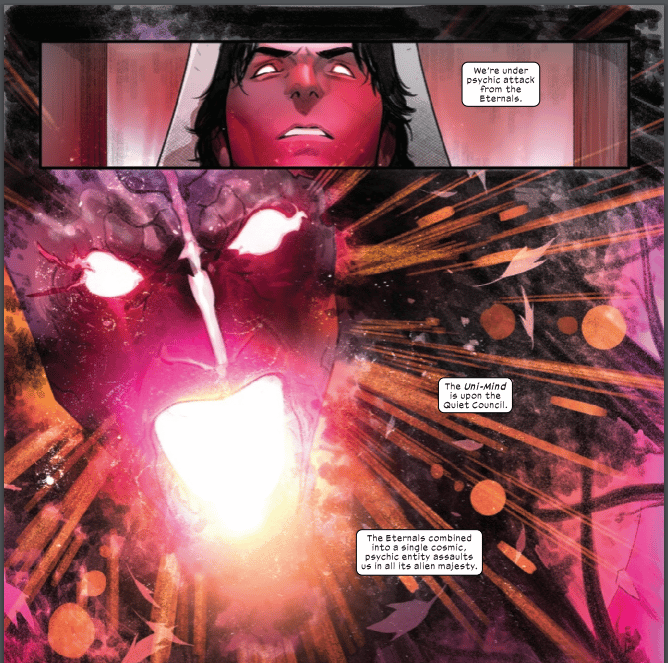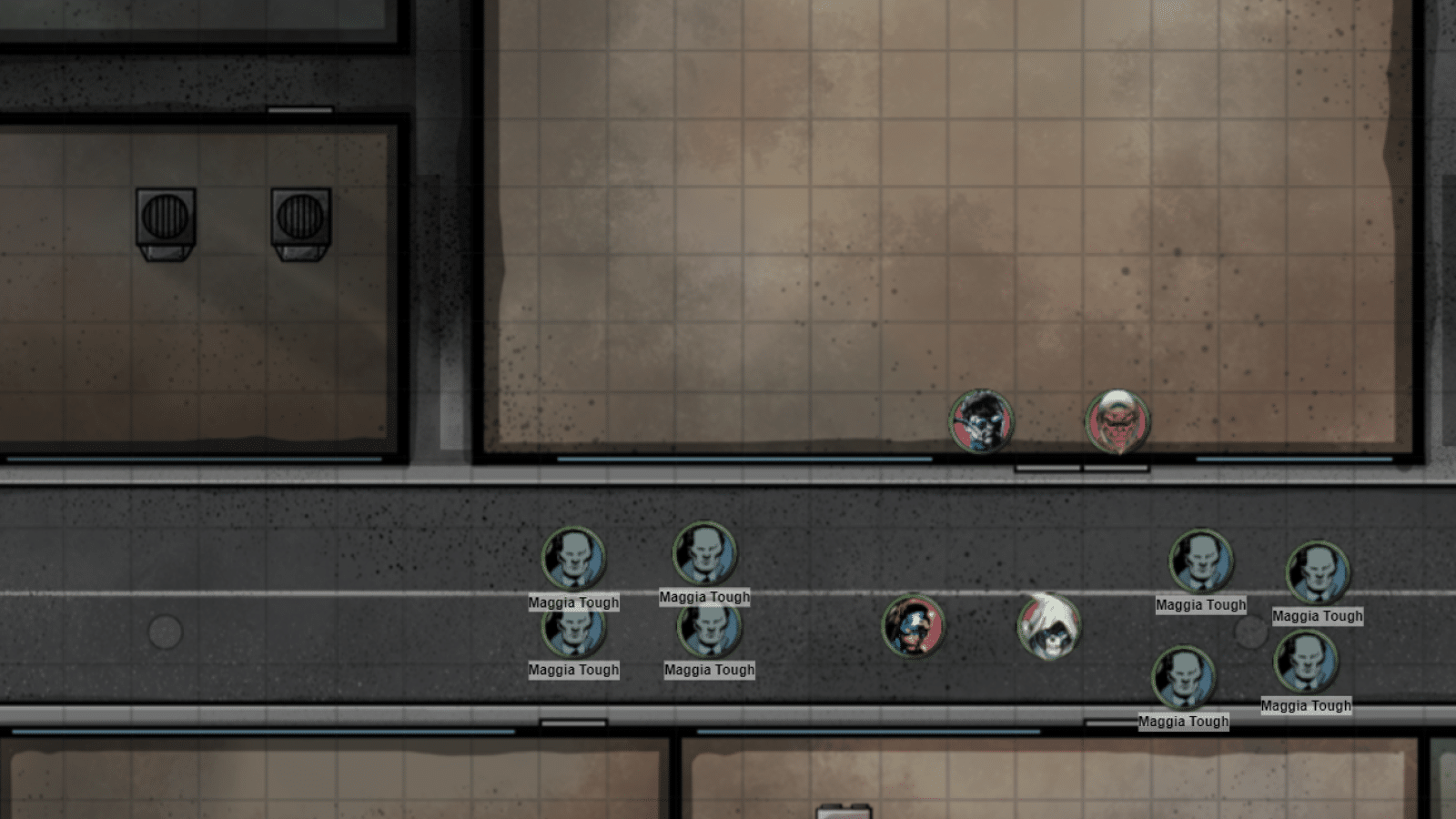An ancient codex.
A treatise studied for millenia(-ish). The mystery at the heart of the psychic attack on the Quiet Council.
Keen-eyed readers may have noticed this page in the recently-released Immortal X-Men #5. What they may not have noticed is the Easter egg contained within it.
Let’s explore!
Bits and Bytes
On the surface, this data page mixes the forms of the Krakoa-era X-Men data pages with The Machine data pages from Gillen, Ribić, Wilson, Cowles et al’s recently concluded Eternals series. In it, the combined will of the Eternals society (those who haven’t exiled themselves or been locked up for eternity, at least), in the form of the Uni-Mind, engages in a psychic attack on Krakoa’s Quiet Council. The Uni-Mind’s internal log is represented by blue and red binary text, which, normally, would be extremely difficult to decode. However, the designer of the page (likely Clayton Cowles or Jay Bowen) decided to leave spaces between each binary octet.
What this means is that each distinct grouping of 8 binary numbers (bits) is a distinct byte of information. Each byte represents an ASCII character. And they say something.
First, a bit on methodology: there are large swaths of characters that are cut off. For example:
These were probably coherent bytes of information at one point, but since they’re cut off, the missing characters could be any one of a number of possible combinations. That being the case, rather than interpolate what these characters could be, I chose to ignore them.
That leaves a lot of usable, though incomplete, data.
Anyway, once I had the usable bytes, I copied them into a binary to ASCII converter, like so:
I wasn’t sure what to expect when I hit convert, so I was somewhat surprised to learn that this was not, in fact, random gibberish. It was a very specific kind of gibberish.
It was Latin.
So what does it say?
Lorem Ipsum
In order to answer this question, we must first turn our minds back to the 16th Century. Back then, movable type was all the rage in Europe, creating a publishing boom unlike any seen before. What had long been the exclusive purview of monks copying books by hand in monasteries was now quickly and easily reproducible by professional printers. One such printer took a bit of Latin text, scrambled the text somewhat and used it to create printed book samples. The text in question, known as “lorem ipsum” has been used through the centuries and is still used today. The history of its use and samples of it are available at lipsum.com.
So yes, instead of just using a random array of 1s and 0s, the designer of this page decided to use literal boilerplate sample text.
Here’s what the binary to ASCII converter spat out. Keep in mind that individual characters (including spaces) are missing from this conversion:
But, what if it wasn’t just sample text?
After all, it was Al Ewing who recently wrote, in Defenders Beyond #1, “there are no coincidences. Only synchronicity.”
Isn’t Al friends with Kieron Gillen?
So I dug deeper.
This Disturbed Sky
Where did this text sample come from? The answer came by way of that same site, lipsum.com. It turns out it’s a corrupted version of a text by Marcus Tullius Cicero, a passage from De finibus bonorum et malorum, or On The Ends Of Good And Evil. Specifically, it’s a passage that dismisses Epicureanism as mere hedonism in favor of Stoicism.
This introduces several possibilities:
- Is Cicero the secret 101st Eternal? Sersi establishes that she has a prior relationship with him in Eternals #2:
- None of the mystery “excluded” Eternals have names starting with C. However, there is the mysterious “Excluded T.” Could it stand for Tullius, Cicero’s second name? Curious.
- Does Gillen mean to posit classical Roman Stoicism (in the form of the Uni-Mind) against Exodus’ Mutant Christian Supersessionism (discussed in my and Austin Gorton’s review)?
- Or is Krakoa the Epicurean hedonistic dystopia that Cicero was speaking out against?
When I reached Kieron Gillen for comment, his puckish reply was simply, “IT ALL CONNECTS.”
The answers are sure to come in A.X.E.: Judgment Day #2, out next Wednesday.
In the immortal single line Shakespeare gives Cicero in his masterpiece, The Tragedy of Julius Caesar (1599), “Good night then, Casca: this disturbed sky/ Is not to walk in.”






